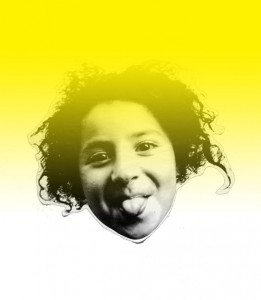Who are we?
Mashallah News is an independent online publishing platform for ‘disOriented’ stories from the Middle East. Our goal is to remap the region one story at a time, sharing a new outlook on life in the cities we cover.
Why do we exist?
Mashallah News was initially conceived by a small group of Beirut-based independent journalists in 2010, towards the end of one of the city’s notorious, sticky summers. Tired of a media coverage dominated by ruins, rockets, religious fanaticism and ‘ancient’ retributions, the team decided to create a multilingual forum from which to broadcast different and neglected narratives.
What do we publish?
Our focus is on urban issues, culture and society — not the national, regional and international politics already covered in abundance by mainstream media. We want our audience to develop an evolving relationship with this region, through a continuous engagement with its diversity of life-worlds, perspectives, beliefs and actions.
We welcome general submissions on a rolling basis. You can find our guidelines here. We also regularly publish thematic series, for which we circulate special calls for submission.
In 2014 we published what we hope will be the first of many books, Beirut Re-Collected, an anthology of ‘forgotten stories’ from Beirut.
The team
Mashallah News is run by a team of collaborating editors, currently based in Beirut, Bangalore and Tbilisi.
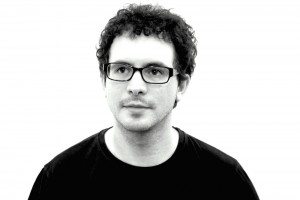
Clément Girardot (co-editor and co-founder) is a freelance journalist covering social, cultural and urban issues. He lived in Istanbul and is currently based in Tbilisi, and travels in the southern Caucasus and Turkey often.
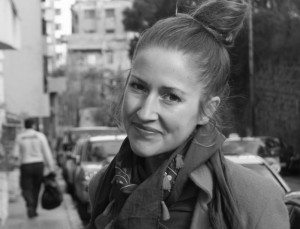
Jenny Gustafsson (co-editor and co-founder) is an independent writer born in Sweden but living in Beirut since 2009. She works across the Middle East, South Asia and elsewhere. Most of all, she enjoys being on the road.
website / contact / twitter / instagram
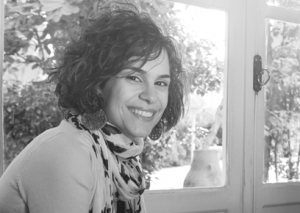
Micheline Tobia (co-editor and co-founder) grew up in Jeddah with Lebanese parents and currently lives in Beirut. She’s passionate about underground culture, urban issues and activism in the Arab world.
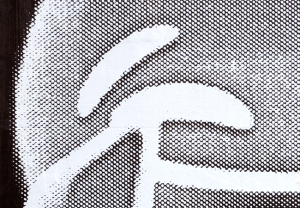
AMI (graphic designers) is a an independent visual communication studio based in Geneva. Its three members — Adeline Senn, Martin Maeder and Ismaël Abdallah — have created the visual outlook and design of both Mashallah News online platforms, the book and printed issues. AMI works mainly in arts and culture.
The brief history of Mashallah News
2010
In November 2010, the very first articles were published on Mashallah News. They came from Beirut, Cairo, Istanbul and Jeddah, and told about crowded sidewalks, literary urban walks, a pioneering female stand-up comedian and a grandmother in Tehran who hid her art under the carpet. Co-founders were Clément Girardot, Micheline Tobia, Jenny Gustafsson and Isabelle Mayault, who had come together to found a new kind of platform covering the Middle East. Isabelle stayed with the team until 2012, when she moved on to other projects – she has been dearly missed since – while the other three have remained and still run Mashallah News. The graphic designers from AMI, a creative team based in Geneva, were also with the project from the start; they have since designed the first and second website, the book we published in 2014 and several printed publications.
2011
Looking back at 2011, it’s hard to remember anything other than the revolutions. For Mashallah News, the uprisings became something we continued returning to: contributors in Syria and Egypt wrote stories and submitted photos; our co-editors went to Tahrir, Tunis, Benghazi and Tripoli. Other media went there as well: this was the year when mainstream news outlets all over the world started to broadcast revolutionary chants in Arabic, translated graffitied calligraphy and traveled to Middle Eastern towns that had previously been off the map. Still, we tried to do something different. We had started Mashallah News to share stories we couldn’t find in conventional outlets: stories about everyday life, creative individuals, interesting art and innovative projects. So when reporting about the pro-democracy movements and revolutions – including those that turned into wars and conflicts – that’s what we sought out to do. 2011 was also the year when we were awarded the World Summit Youth Award, given to initiatives whose work supports the UN development goals, and when we organised several events about urban culture and journalism in Istanbul and Beirut.
2012
In 2012, Mashallah News continued to find new readers and contributors. Many of our stories were still connected in one way or another to the uprisings and protests, but we also wrote about an unexpected senior football fan, undressed wrestling in Dubai, surviving Sudanese cinemas, and published a series entirely dedicated to humour. Our contributor Sophie Chamas was one of two winners to receive the Anna Lindh Foundation’s Mediterranean Journalist Award in the New Media category for her story Ani mi Levanon; another Mashallah contributor, Amani Massoud, was also nominated, for a piece she wrote for Al Masry Al Youm. In 2012, we also published a letter to imprisoned Saudi journalist Hamza Kashghari from one of his friends; an interview with cartoonist Khalid Albaih who since has received a lot of attention for his Khartoon! comics; and a feature about the brave Syrian short documentary project Abou Naddara. We also organised an event in Paris, about journalism and censorship in Iran. Finally, we began working on an exciting project in Beirut: an anthology collecting ‘forgotten stories’ from the city, produced together with our friends from AMI, Ismaël Abdallah, Adeline Senn and Martin Maeder.
2013
The work with the book continued during 2013 – anyone who has published a book knows the amount of work involved in such a project! At the end of the year, we sent the final manuscript to Tamyras, our publisher in Lebanon. Online, we continued publishing stories on specific themes, including a series on the topic of food, with stories from Istanbul, Yerevan, Beirut and Tehran. In May, as the Gezi protests brought masses to the streets of Istanbul, we maintained a live blog for over a week, covering what was happening, much with the help of our temporary editorial member Jay Cassano. This was also the year when two new team members joined the editorial team: Ella Wind from New York and Sophie Chamas, from Lebanon but living in Dubai. Both came to stay on the team until 2015, when they started working towards their PhDs.
2014
Our book, Beirut Re-Collected, was published in the beginning of the year, in both English and French. We organised an event in Beirut and one in Dubai to launch it, and presented it at the book fair in Paris. The book can be ordered from Antoine Online or bought in bookstores across Beirut. In summer, we got the good news that Mashallah News had been selected as one of the grantees of the Ebticar media grant, a program supporting emerging online media in the Middle East. We also took part in a journalism training related to the same program, the 4M Mashreq. Through the Ebticar grant, we started a collaboration with KnoozRoom, a Beirut-based digital storytelling team. Together with them, we started preparing for three co-produced multimedia series on different themes: Routes, Night and Language. In 2014 we also published Fate, a series with new Middle Eastern fiction, gathering six stories with new outlooks from Cairo, Damascus, Beirut, Amman and wartime Iraq and Iran.
2015
Throughout 2015, we continued collaborating with KnoozRoom. We published Routes and Night, and made printed versions of both. Lebanese illustrators Hussein Nakhal and Nour Bishouty did the visuals for the Routes series, while Night was focused on photography and art directed by David Habchy, also from Lebanon. Shaden Fakih did a great job with the graphic design for both printed editions. We also continued something we started in 2014: featuring mixes with new music from across the Middle East, curated by Gabriel Luis Manga. Then, in summer, we released a new version of the website: since we started in 2010, Mashallah News had looked the same. The Ebticar grant made it possible for us to upgrade site and make room for more diverse ways of telling stories. The site remained in beta version until spring 2016, when the final version of the site was launched.
2016
The year started with the recruitment of a new Mashallah News member, Mohammad Hamdan from Ramallah, who joined us as a fundraiser. The editorial team, including Mohammad, met in Amman in February, during a workshop gathering all Ebticar grantees. We published Language, the third and final series as part of the KnoozRoom-Mashallah collaboration – and as a prelude, we wrote about a new and interesting attempt to give children access to books written in colloquial Arabic. Please stay in touch with us for updates on future plans and projects!
